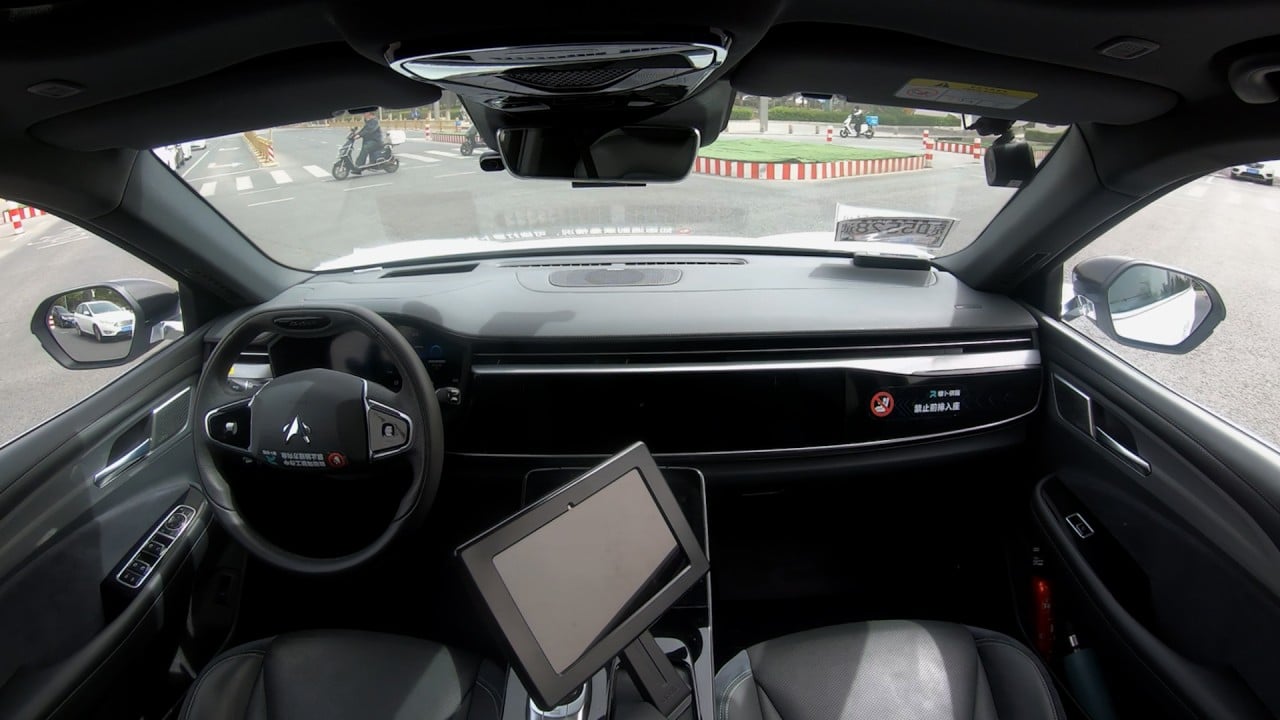The new regulations emphasise that internet companies must immediately remove and keep records of any content deemed to be terrorism-related or extremist and report it to the police, in line with the national law.
They state that city authorities will also inspect and strengthen risk monitoring of “new technologies” and “new industries”.
Advertisement
These new industries were identified as including AI, blockchain and autonomous driving in a draft of the regulations released for public comment in April, but this does not appear in the final version.
It comes as the Chinese government is increasingly focused on political security and tightening control of the tech industry.
After the full text of the new regulations were published, official newspaper Beijing Daily said they were aimed at “maintaining political security and social stability in the capital”.
Raffaello Pantucci, a senior fellow at the S. Rajaratnam School of International Studies in Singapore, said the emphasis on “new industries” and “new technology” suggested that “this was something the public security bodies thought was a gap in their coverage”.
Advertisement
“This expands public security organs’ ability to prosecute and demand information from citizens by invoking this set of rules,” he said.
According to Angela Huyue Zhang, associate professor of law at the University of Hong Kong, the new regulations are an example of how key the internet is to the Chinese government’s security vision.
Advertisement
“Online content regulation is an important component of China’s security framework, so it is not surprising that internet service providers, such as technology companies, are also subject to regulation under the anti-terrorism law,” said Zhang, who is also director of HKU’s Philip K.H. Wong Centre for Chinese Law.
But she said the move did not indicate there would be more scrutiny of the tech industry.
China sets out new rules for generative AI with an emphasis on ‘core socialist values’
China sets out new rules for generative AI with an emphasis on ‘core socialist values’
According to the regulations, Beijing’s public security and state security units will set up a “grass-roots intelligence network”, with residents to be trained so they can better identify “suspicious situations involving terrorism”.
Advertisement
Beijing will also be required to strengthen cooperation on counterterrorism with neighbouring Tianjin and Hebei province.
The regulations also call for increased terrorism prevention efforts in the “core area of the capital” – where the top offices of the Communist Party, State Council, National People’s Congress and various ministries and commissions are located.
The city’s counterterrorism division will also establish a coordination mechanism with state ministries and state-owned enterprises that are headquartered in Beijing, as well as the People’s Liberation Army in Beijing.
Advertisement
The new regulations also reaffirm the municipal government’s authority to tighten traffic management during state-level “major events” – such as National Day celebrations, military parades and diplomatic conferences.
Municipal and provincial legislatures in China can enact local legislation to define how they implement national laws.
The Xinjiang Uygur autonomous region was the first to introduce its own regulations after the anti-terrorism law took effect. They prioritise “extremism” in the fight against terrorism, give some courts the power to designate terrorist organisations, and require the population to take part in counterterrorism efforts.
China has drawn international criticism for its treatment of Uygurs and other Muslim minorities in Xinjiang. But Beijing has denied allegations of human rights violations, saying its security policies in Xinjiang are needed to fight terrorism and the region has not seen any terror attacks since 2017.
Shanghai as well as Hunan, Fujian and Zhejiang provinces have also introduced regulations under the anti-terrorism law in the past three years.
Advertisement



